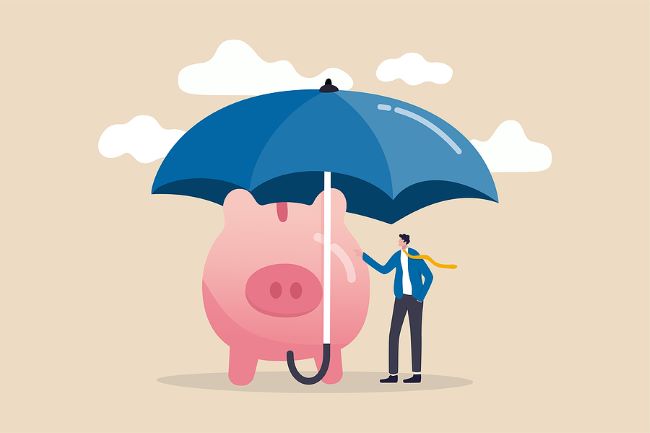The signs of high inflation are everywhere. Whether you’re buying weekly essentials like food and gas or planning big-ticket purchases like a car or a vacation, you’re likely paying much more than you used to. Take steps now to protect your personal finances.
Inflation Reaches a 40-Year High
Inflation reached 9.1% in June. That’s based on the Consumer Price Index for All Urban Consumers (CPI-U), a key figure released by the U.S. Bureau of Labor Statistics. This isn’t just an above-average rate of inflation. It’s the largest price increase since 1981.
Many people have received raises, but even if you got a 5% raise in the last year, you’d still be earning relatively less once you take the 9.1% inflation rate into account. CNBC says that 66% of workers say inflation has outpaced the salary increases they’ve gotten in the last 12 months.
For people in or near retirement, inflation is especially troubling. This is because inflation reduces buying power, and for people on a fixed income, it’s hard to make up the difference. However, CNBC says that Social Security beneficiaries could be getting a 10.5% cost-of-living adjustment in 2023, according to estimates from the Senior Citizens League.
Don’t Jeopardize Your Finances
When money is tight, you might be tempted to cut back on insurance, rack up your credit card, put your savings on hold or drain your retirement accounts. Think twice before you make these money moves.
Yes, putting everything on credit may give you some breathing room this month, but you’re only kicking the can down the road. In the long run, short-sighted decisions like this will come back to bite you, so avoid making them if you have any other choice.
Although investing during periods of high inflation can be more challenging, it is possible to increase your investments with the right strategies. According to Investopedia, some types of assets do especially well during high inflation. Real estate, commodities and other tangible assets are often used as inflation hedges. If you’re worried about how your investments will fare during inflation, this is a good time to talk to a financial adviser.
Redo Your Budget
Simply put, inflation means your dollars don’t stretch as far.
The U.S. Inflation Calculator shows a cumulative rate of inflation of 14.5% between 2020 and 2022. This means that something that cost $1 in 2020 will cost about $1.14 now, on average. This might seem trivial, but it adds up. Based on the same figures, if you budgeted $400 a month toward groceries in 2020, you’ll need about $457.96 to buy the same amount of groceries today.
If your income hasn’t increased to make up the difference, you need to adjust your spending, or you’ll risk going into debt.
- Save on groceries. You may be able to save on groceries by switching to generic items, using coupons and shopping around for the best deal. Making a list and sticking to it can also help you avoid expensive impulse buys. For more tips, see CNN Business.
- Save on gas. Did you know that low tire pressure can make your car less fuel efficient? Keeping your tires inflated to the recommended pressure is one way to save on gas. Tools like GasBuddy help you find the best prices in your area. For more tips, see Consumer Reports.
- Cut subscriptions. Monthly subscription costs can add up fast. You might not even remember that you’re subscribed to some services. You can do this on your own, or you can use apps like Trim that can help you identify and cancel unwanted subscriptions.
- Watch out for lifestyle creep. As people earn more, they tend to get used to little luxuries, like eating out more or buying more expensive accessories. As a result, their monthly costs increase along with their wages. Then when there are economic difficulties, like the high inflation we’re seeing now, it can be hard for people to keep their heads above water. Think about whether you’ve gotten used to little things that you can cut back on.
- Focus on your priorities. If money is really tight, you might have to make some hard decisions. For example, do you really need a big vacation, or would it be smarter to put your extra cash toward your retirement plan? Decide what matters most to you.
- Put your budget in writing. It’s not enough to think about how you’ll spend your money. You need a written plan. Otherwise, little costs can add up, and you can end up way over budget. Investopedia has several budgeting software options to choose from.
High inflation doesn’t mean that you have to put your financial goals on hold. Download our financial planning asset tool.

